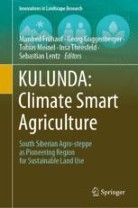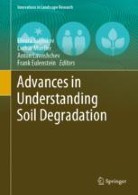
About this book series
Aims
& Scope
The Springer series “Innovations in Landscape Research” presents novel methodologies and technologies to understand, monitor and manage landscapes of the Anthropocene. The aim is to achieve landscape sustainability at high productivity. This includes halting degradation of landscapes and their compartments, developing cultural landscapes, and preserving semi-natural landscapes. Clean water and air, fertile and healthy soils for food and other ecosystem services, and a green and bio-diverse environment are attributes of landscapes for the survival and well-being of humans who inhabit them.
How do landscapes function? How do future landscapes look like? How can we sustainably develop intensively used and stressed kinds of landscapes? Scientific innovations and decision tools are key to answer and solve those challenging questions. The series will inform about advanced methods and results of disciplinary, interdisciplinary and transdisciplinary work in landscape research. It presents a broad array of methods to measure, assess, forecast, utilize and control landscapes and their compartments. These include field and laboratory measurement methods, methods of resource evaluation, functional mapping and risk assessment, and sensing methods for landscape monitoring, advanced methods for data analysis and ecosystem modeling, methods and technologies for optimizing the use of multi-functional landscapes, for the bioremediation of soil and water, and basics and procedures of landscape planning. The series provides a new view on landscapes with some focus on scientific and technological innovations, on soils and problems of optimizing agricultural landscapes under conditions of progressive urbanization. Landscape research in a globalized world of the Anthropocene is based on gathering big data and scenario modeling. International long-term experiments and agri-environmental monitoring systems will deliver data for ecosystem models and decision support systems.
Edited volumes of this series will address the following topics at high priority: Status and Trends of Landscape Research; Understanding Key Landscape Processes; Landscape Services, Functions and Biodiversity; Assessing Soil Resources and Quality; Water Resource and Quality Monitoring; Landscape Monitoring Concepts and Studies; Landscape Sensor and Monitoring Technologies; Landscape Modeling and Decision Support; Agricultural Soil and Plant Management; Basics and Tools for Landscape Planning; Tools for Water and Wetland Management; Forest Management and Agroforestry; Rehabilitation of Degraded Landscapes.
The books of this series are a source of information for researchers, teachers, students, and stakeholders interested in the topics of landscape science and related disciplines. They present status analyses, methodical chapters and case studies showing the practical relevance and feasibility of novel decision tools and technologies. Thus, the books of this series will be a particular valuable information basis for managers and decision makers at various levels, from local up to international decision bodies.
An author/editor questionnaire, instructions for authors and a book proposal form can be obtained by contacting the Publisher.
- Electronic ISSN
- 2524-5163
- Print ISSN
- 2524-5155
- Series Editor
-
- Lothar Mueller
Book titles in this series
-

-
Exploring and Optimizing Agricultural Landscapes
- Editors:
-
- Lothar Mueller
- Viktor G. Sychev
- Nikolai M. Dronin
- Frank Eulenstein
- Copyright: 2021
Available Renditions
- Hard cover
- Soft cover
- eBook
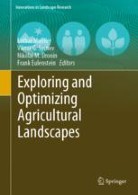
-
Landscape Modelling and Decision Support
- Editors:
-
- Wilfried Mirschel
- Vitaly V. Terleev
- Karl-Otto Wenkel
- Copyright: 2020
Available Renditions
- Hard cover
- Soft cover
- eBook
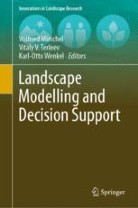
-
Current Trends in Landscape Research
- Editors:
-
- Lothar Mueller
- Frank Eulenstein
- Copyright: 2019
Available Renditions
- Hard cover
- Soft cover
- eBook
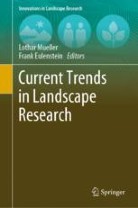
-
KULUNDA: Climate Smart Agriculture
South Siberian Agro-steppe as Pioneering Region for Sustainable Land Use
- Editors:
-
- Manfred Frühauf
- Georg Guggenberger
- Tobias Meinel
- Insa Theesfeld
- Copyright: 2020
Available Renditions
- Hard cover
- Soft cover
- eBook
